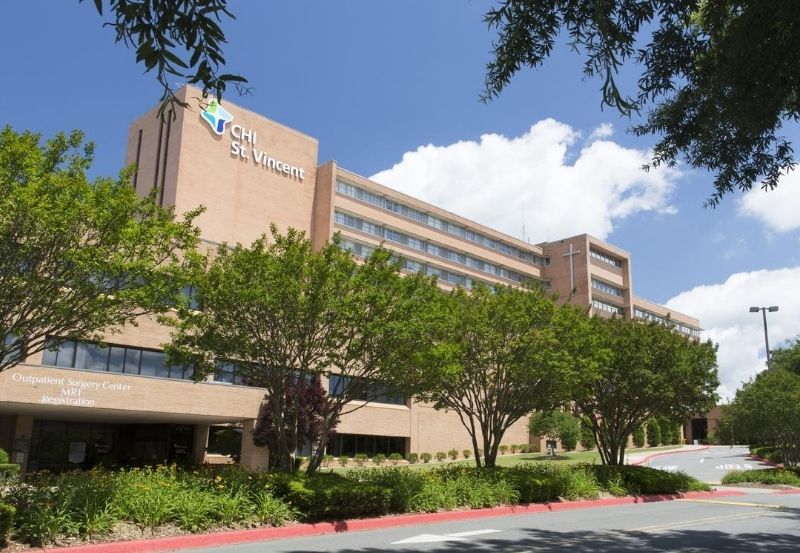For all media inquiries, please call Marketing and Communications at 501.912.6929
CHI St. Vincent Heart Institute Becomes First in Arkansas to Perform Transcaval TAVR Procedure

The CHI St. Vincent Heart Institute has become the first institution in Arkansas to successfully perform a Transcaval TAVR heart procedure, expanding heart surgery options for patients with severe aortic valve stenosis seeking alternatives to open heart surgery. The Transcaval TAVR technique, developed for patients who may not be candidates for normal TAVR surgery, was performed by CHI St. Vincent Interventional Cardiologist Dr. Aravind Rao and Cardiovascular Surgeon Dr. Thomas Rayburn.
“This marks an incredible step forward for Arkansans seeking the very best in heart care,” said CHI St. Vincent Heart Institute President Marcia Atkinson. “Procedures like the Transcaval TAVR are less invasive than open heart surgery and offer dramatically reduced recovery times for patients. At this point, our team of expert heart specialists can offer about any advanced heart surgery technique being offered anywhere in the country.”
The TAVR, or Transcatheter Aortic Valve Replacement, procedure allows surgeons to replace the aortic valve without open heart surgery, resulting in improved quality of life and extended lifespans. It was originally only offered to patients who were at high risk for open heart surgery, but the U.S. Food and Drug Administration (FDA) expanded the scope in August of 2019 to include patients at low surgical risk following studies that showed TAVR procedures were as good or superior to surgical aortic valve replacement procedures.
The normal TAVR procedure relies on larger vascular access routes in the leg that can accommodate TAVR devices, but not all patients are candidates for the procedure for various reasons. Patients with suboptimal femoral access routes can now benefit from this Transcaval TAVR technique which allows heart surgeons to safely bypass problematic arterial regions.
“In this patient, the femoral access route used for a normal TAVR procedure was heavily calcified and she had no other option for a valve replacement,” said Dr. Rao. “She worked with our team for six-months, had full faith in the Heart Institute and didn’t want to go anywhere else. It’s now been well over a month since the surgery and she’s doing great.”
Typical TAVR procedures take one-to-two hours to complete and require an average of a one night stay in the hospital. In contrast, open-heart surgery requires between two-to-four hours in surgery, an average of five-to-seven days in the hospital and six-to-eight weeks of recovery. The CHI St. Vincent Heart Institute is one of three institutions across the 142 hospital and 21 state CommonSpirit Health system recognized as a center of excellence for TAVR procedures.
